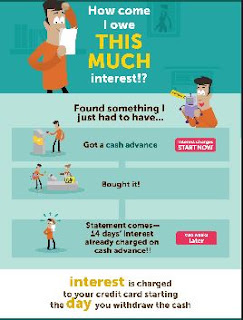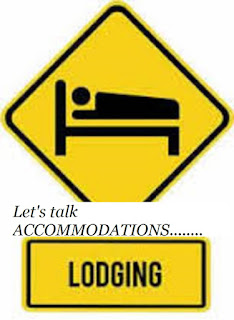DEBIT AND CREDIT CARDS OVERSEAS - WHAT YOU SHOULD KNOW
What you should know about Debit and Credit Cards when traveling overseas:
ATMs are your best option for obtaining money overseas. It is true that some banks charge high fees to use foreign ATMS, including foreign transaction fees, but ATMs are still the cheapest option. We suggest using a credit union. Most credit unions are very reasonable. Definitely check with your bank concerning the fees and if they are absorbent think about switching banks. We always travel with Debit cards from two separate banks. This gives us a backup in case one is declined or lost. Another tip is to make sure one is on the Visa network and one is on the MasterCard network. Make sure your daily withdrawal limit is substantial enough for the funds you plan to withdraw. Most banks allow a daily limit of $400 to $500 upon request.
As of 3.7.2017
- Bank of America $5.00 +3% of amount for withdrawal then 3% on top for foreign exchange fee
- Chase Bank $5.00 or 3% of dollar amount (greater of two) then 3% on top for foreign exchange fee
- Citibank No fee using Citibank ATM or $2.50 non Citibank ATM + 3% of amount then 3% on top for foreign exchange fee
- Citizens Bank $3.00 + 2.8% to 3% of amount then 2.8% to 3% on top for foreign exchange fee
- Fifth Third Bank $5.00 or 3% of dollar amount (greater of two) then 3% on top for foreign exchange fee
- HSBC Bank $2.50 + 3% of amount then 3% on top for foreign exchange fee
- Nationwide Bank $1.50 + 1% of amount and then 1% on top for foreign exchange fee
- Navy Federal Credit Union $1.00 + .8% to 1% of amount and then .8% to 1% on top for foreign exchange fee - THIS IS THE CARD WE USE
- SunTrust Bank $5.00 or 3% of dollar amount (greater of two) then 3% on top for foreign exchange fee
- Union Bank $5.00 and then 2% on top for foreign exchange fee
- US Bank $2.50 + 2% to 3% of amount and then 2% to 3% on top for foreign transaction fee
- Well Fargo Bank $5.00 and then 3% on top for foreign transaction fee
Use Credit Cards for purchases:
Whenever possible use credit cards for purchases. We use our ATM cards to withdraw funds and our credit cards for all purchases. We recommend never using your Debit card overseas for purchases. When choosing a credit card look for cards that do not charge foreign transaction fees. Visa and MasterCard are accepted most places.
As of 3.7.2017
- Bank of America Travel Rewards Credit Card - no anual fee
- Chase Sapphire Preferred Card - sign up bonus and annual fee
- Capital One Venture Rewards Credit Card - easy travel redemption
- Capital One Quicksilver Cash Reward Credit Card - cash back
- Chip and Pin - Barclaycard Arrival+ - annual fee
- Chase United MileagePlus Explorer Card - annual fee
Beware of No Fee Bureau exchanges:
You might think that not paying a fee is a deal since ATM cards charge a fee. This is NOT TRUE! When you use your ATM card you are getting the best possible foreign exchange rate. When you use a No Fee Bureau exchange you are getting a horrible exchange rate. This is how they make their money. We use http://www.xe.com/currencyconverter/ to see the best rates. These are also the rates your bank will use (or close to it) when you withdraw money from an ATM.
Never use Dynamic Currency Exchange:
If they offer you the option to pay in your local currency (US$)- DON'T. Even if your credit card charges a foreign exchange fee you will still end up paying more. They make money by doing this. Some ATMs even offer the option.
Many countries use Chip + Pin:
You may think you are OK because you have a credit card with a chip. Unless you have a PIN to go with the credit card you might still have issues using the credit card where Chip + Pin are required. Most of the time you will be fine. Just make sure you ask up front if you are making a large purchase.
Always inform you Banks of your travel plans:
If you do not inform you banks of your travel plans your cards will most likely be locked on first use. You must do this for both Debit and Credit cards. Most banks allow you to do this online. Call your banks 7 to 10 days prior to your departure to let them know your dates and destinations. This will insure uninterrupted use of your
cards.
Only take a cash advance from a credit card in an Emergency:
On top of all of the foreign exchange fees you will also pay a cash advance fee.
Take some local currency with you:
In the case of an emergency most large hotel chains will exchange your local currency. You can also exchange at most banks.
A final tip - be sure to take the phone numbers associated with your cards in case they are lost or stolen. You won't need the credit card number - your bank can look it up.











Its really awesome try more ,
ReplyDeletexe-currency-converter_playstore